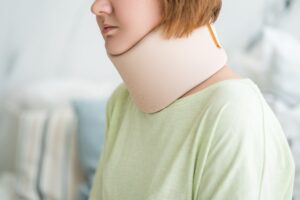Everything You Need To Know About Holiday Accident Compensation Claims
Have you been injured whilst on holiday abroad? You may be wondering whether you could still be eligible for personal injury compensation. In this holiday accident compensation claims guide, we discuss when you could be eligible for compensation.
Key Takeaways For Holiday Accident Claims
- The services and activities that holiday companies provide or recommend as part of their deals must comply with a standard of safety and care.
- If the package holiday provider, hotel or resort breaches this duty of care, you could be eligible for compensation for your pain, suffering and financial losses.
- Evidence that proves you were injured because of health and safety failings can support a compensation claim.
- The expert personal injury solicitors on our panel can take up eligible claims under a type of No Win No Fee agreement.
To discuss your case today and receive free advice on what steps you could take next, you can contact our advisors.
- Phone us on 020 3870 4868 for a free consultation.
- Start your claim online using our online contact form.
- Use the live discussion window in the corner of this screen.

Select A Section Of Our Holiday Accident Compensation Claims Guide
- Who Is Eligible To Make Holiday Accident Compensation Claims?
- Types Of Holiday Accidents
- What Should I Do If I Have An Accident Abroad?
- How Much Compensation Could I Get From A Holiday Accident Claim?
- How Long Do I Have To Make Holiday Accident Compensation Claims?
- Can I Make A Holiday Accident Claim Through UKLaw?
- More Information
Who Is Eligible To Make Holiday Accident Compensation Claims?
If you have been injured while on holiday, you could still be eligible to make a claim for compensation.
While you are on holiday, various third parties will owe a duty of care to you that relates to your safety, their services and quality of work. If you suffer an injury due to one of these third parties breaching their duty of care, you could be eligible to make a claim for compensation.
Generally, your claim will need to be made in the country where your accident took place. This means that your claim will be subject to the laws of that country, and the amount of compensation you could receive may differ from claims that are made in England.
However, under The Package Travel and Linked Travel Arrangements 2018. you may be able to make your claim in the UK if you travelled as part of a package holiday. Under this legislation, should a holiday provider customer suffer an injury or illness, such as food poisoning, due to them being negligent, the holiday provider will be held accountable. When you book a package holiday, you are owed a duty of care for your reasonable safety under the components of the package, such as the hotel you are residing at.
To have an eligible claim under this legislation, you must prove:
- You were owed a duty of care at the time and place of the accident by the tour operator.
- This duty was breached.
- This breach caused your injuries.
Claiming For An Accident While On Holiday In The UK
Holiday accident compensation claims can also be made if you suffered an injury while on a holiday within the UK.
In the UK, the Occupiers’ Liability Act 1957 outlines the duty of care responsibilities owed by those who provide services or facilities to the public. This law states that those in charge of an area must take all necessary actions to ensure the reasonable health and safety of those using that space.
If an occupier failed to adhere to their duty of care, and you suffered an injury, you could be eligible to make a personal injury claim.
To discuss your case today and see whether you may have a valid claim, you can contact our advisors.

Types Of Holiday Accidents
Whether abroad or in the UK, there are numerous ways that an accident could occur while on holiday. Some examples include:
- The tiling around the swimming pool at the hotel you are staying at is broken, causing you to trip and suffer an arm and head injury.
- You slip and suffer a leg injury in the reception of your hotel due to the hotel failing to put out a wet floor sign after mopping the floor.
- The balcony in a hotel is broken, which causes a guest to fall from a height when they lean against the railing, and it breaks. This causes them to suffer a back injury.
Whatever the nature of your accident on holiday, why not speak to our team to see if you can seek compensation? Contact one of our friendly advisors today.
Claiming For Food Poisoning While Abroad
A package holiday provider could be liable for causing food poisoning if a person eats contaminated meals in the hotel, restaurant, or buffet that was part of the package deal. If you can prove that food safety standards were not adhered to for the food that was provided to you, and this caused your food poisoning, you may be eligible to claim compensation.
To discuss your case or ask any questions about the holiday accident compensation claims process, you can contact our advisors,
What Should I Do If I Have An Accident Abroad?
All holiday accident compensation claims will need to be supported with evidence, proving what injuries you suffered and who was responsible for them.
Examples of evidence that could help support your claim include:
- Medical evidence of the injuries you suffered, such as your medical records of any treatments you received once you returned to the UK.
- Photgraphs of the accident site and your injuries.
- Any correspondence between yourself and the holiday provider, such as a complaint letter.
- The contact details of anyone who saw your accident, as they could provide a statement at a later date.
A solicitor from our panel could help you with gathering evidence to support your claim. To see if you could work with one of them, you can contact our advisors.
How Much Compensation Could I Get From A Holiday Accident Claim?
Any compensation awarded for holiday accident compensation claims made in the UK could consist of two heads of loss.
Firstly, general damages are awarded in all successful cases for the person’s physical and mental health injuries.
Legal professionals often refer to medical evidence to calculate general damages. They might also consult the Judicial College Guidelines (JCG), which provide compensation guidelines for various injuries. We have included some of these guidelines within the table below, aside from the first entry.
Please note, however, that the JCG only applies to claims made in Wales or England.
Compensation Guidelines
| INJURY | SEVERITY | JC GUIDELINES | NOTES |
|---|---|---|---|
| Multiple forms of serious injury as well as special damages. | Serious | Up to £1 million plus. | An award of this size includes more than one type of serious injury and special damages for care costs, medical fees and lost income. |
| Head | Very Severe | £344,150 up to £493,000 | Permanent and profound brain damage leaving the person completely reliant on others. |
| Less Severe | £18,700 up to £52,550 | Overall a good recovery but some persisting issues with memory, mood and concentration. | |
| Back | Severe (iii) | £47,320 up to £85,100 | Disc lesions or fractures, soft tissue damage as well as vertebral body fractures. |
| Leg | Severe (iii) Serious | £47,840 up to £66,920 | Fractures that entail a prolonged treatment period. |
| Pelvis | Severe (iii) | £47,810 up to £64,070 | Covers a wide range of injuries including acetabulum fractures that causes instability and degenerative changes. |
| Ankle | Severe | £38,210 up to £61,090 | Injuries that require a prolonged period in a cast and/or with surgical pins inserted. |
| Hand | Severe finger fracture | Up to £44,840 | The type of injury that might require partial amputation. |
| Digestive System | Illness from non-traumatic injury such as food poisoning (ii) | £11,640 up to £23,430 | Short-lived but serious case of food poisoning that diminishes over a month but leaves discomfort and bowel disfunction. |
Special Damages In Holiday Accident Compensation Claims
Special damages are the secondary head of loss that could make up a compensation award. They compensate the claimant for the financial consequences of the injuries. To include special damages as part of your claim, you will need to put forward evidence of the financial loss. This can include:
- Wage slips that demonstrate how you suffered a loss of earnings or damage to your income because of the injuries.
- Proof of medical bills and expenses you had to pay for, such as physiotherapy.
- Invoices for any care costs you had to pay for.
- Receipts for travel expenses to medical appointments,
If you have any questions regarding how compensation is awarded for holiday accident compensation claims, you can contact our advisors.

How Long Do I Have To Make A Holiday Accident Claim?
If you are making your holiday accident claim in the country where you have been injured, the laws of that country will affect how long you have to begin the claiming process.
What Are The Time Limits For Holiday Accident Compensation Claims In The UK?
If you are making a personal injury claim in the UK, under the Limitation Act 1980, you have three years to begin your claim from the date the accident took place.
However, certain exceptions apply to those:
- Injured as a minor (under the age of 18).
- Lacking the mental capacity to handle their own claim.
In both these cases, the time limit is paused and a litigation friend could make a claim on their behalf. The time limit will start if a claim hasn’t already been started on their behalf and the claimant:
- Turns 18.
- Recovers this mental capacity.
Contact our advisors today to see whether you may still have enough time to begin your personal injury claim.
Can I Make A Holiday Accident Claim Through UKLaw?
If you contact our advisors today to discuss your case, they may connect you with one of the holiday accident compensation claims solicitors on our panel.
Some of the expert services they could provide you with include:
- Helping you gather evidence.
- Ensuring your claim is submitted within the time limit.
- Calculating your compensation payout.
- Explaining any legal jargon used throughout the claims process.
Why Should I Use A No Win No Fee Agreement?
The solicitors on our panel provide their services under a type of No Win No Fee contract called a Conditional Fee Agreement (CFA). With this arrangement in place, you could experience:
- Not having to pay for their services upfront.
- Not having to pay for their services as the claim progresses.
- Having nothing to pay them for their work if the claim fails.
Should the claim succeed, you will pay them a success fee from your compensation. The law limits the percentage this fee can be.
If you have any questions about the holiday accident claim process or would like to know whether one of the solicitors on our panel could help you, contact our advisors today:
- Phone us on 020 3870 4868
- Start your claim online here.
- Use the live discussion window in the corner of this screen.

More Information
You might find these other resources useful:
- This guide looks at package holiday claims in more detail.
- Here you can read more on how to claim for an accident in a public place.
- In addition to this, details on food allergy claims are here.
External information to help:
- Find out how to apply for a Global Health Insurance Card (GHIC) in this NHS guide.
- Learn when you should provide first aid with this NHS resource.
- You can find up to date foreign travel advice from the government at this resource.
Thank you for reading this holiday accident compensation claims guide.




